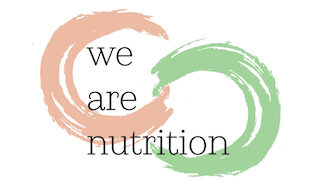There are lots of distressing symptoms that you’ll likely to face when you hit the perimenopause and menopause, but something that can be particularly difficult to deal with is changes in your hair quality and quantity.
Hormonal changes can really wreak havoc on your locks and, where once they were thick, luscious and shiny, you may suddenly find that your hairbrush is coming away with large wefts of hair attached to it, or perhaps the strands of hair are turning softer and wispier, and you can start to see your scalp more than before.
While it can be really upsetting to experience changes in your hair texture, the good news is that there’s a huge amount you can do to tackle the situation. You certainly don’t have to take hair loss lying down these days, something we can all be very grateful for!
Now, don’t go running straight to the hair transplant clinic as soon as you see some changes occurring. That’s probably worst case scenario at the very beginning (although, again, wonderful that we have it as an option. We’re very lucky in the 21st century!) and there are lots of other avenues to consider before you book an appointment with a scalpel.
Of course, there are medications, shampoos and growth serums that many women have found to be effective, so these are certainly worth investigating, especially from an anxiety perspective.
Feeling proactive about your hair loss can make a big difference to your confidence and self-esteem, which can definitely take a knock when your hair starts to change.
And what’s also important to remember is that stress and anxiety can actually make hair loss worse, so try to keep a level head (as it were!), breathe through the negativity and see what strategies you can employ to help restore your hair to its former glory.
Nutrition is key
As well as reducing stress levels and ensuring that you stay as active as possible during the menopause, you can help give your hair a big boost by focusing on your diet and nutrition.
Following a well-balanced diet is a must, one that is full of lots of fresh fruit and vegetables, as well as wholegrains, but you can really up the ante by ensuring that you’re getting enough fatty acids on your plate. These are great for your hair and can be found in the likes of salmon, tuna, walnuts and almonds.
Something else you might want to consider taking each day is spirulina, a blue-green algae that’s often provided for astronauts as a food source! Spirulina is made up of protein, fatty acids and iron, all of which will work wonders on your hair in a matter of weeks, so if you are worried and want to make some changes, this would be a great place to start.
And, as ever, if you need any further help or advice get in touch with menopause nutritionist Charlotte today to see how she can guide you through the choppy waters of the next few years.

